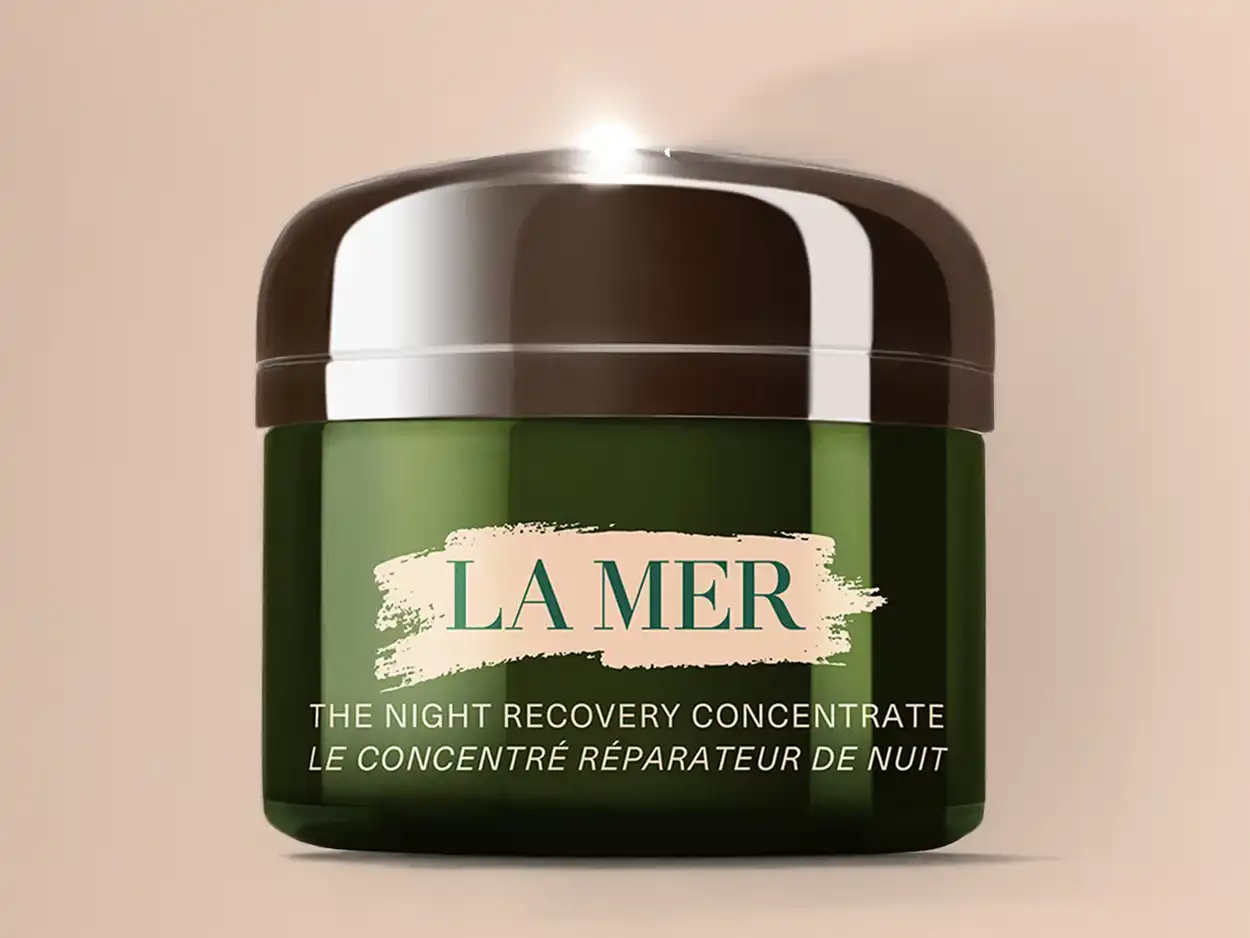La Mer is often associated with luxurious skincare, though it might not be on everyone’s radar. The brand promises soothing formulas that nurture even the most stressed complexions. Enter their new offering, The Night Recovery Concentrate, described as an extreme barrier wrap designed to calm post-derm treatment irritation, boost resilience, and reduce visible sensitivities. Allegedly, 94% of users felt it left skin stronger, with a comforting and soothing effect, quite a formidable claim for a night cream.
So, how well does this so-called “recovery treatment” fare in reality? After using it for a full week, the aim here is to figure out if it truly supports skin repair while you rest. This review is not sponsored; everything shared is genuinely based on my experience, and it’s crucial to remember that skincare results can vary widely from person to person.
What Is The Night Recovery Concentrate?
This offering from La Mer belongs to the night cream category, meaning it’s intended for use before bed to help the skin recover and renew while you sleep. Night creams, in general, are designed to complement the skin’s nocturnal repair process by providing targeted soothing and hydration. In this particular formula, it’s described as an “extreme barrier wrap” aimed at tackling post-treatment irritation and visible sensitivities. It claims to support resilience, calm stressed skin, and reduce reactivity, making it an option for those navigating concerns like retinol dryness or other skin stressors. The product also features a time-release delivery system, which the brand says accelerates the barrier repair process during overnight rest.
Did It Work?
In the name of science, I paused my usual night cream for a few days before starting with The Night Recovery Concentrate, gotta keep it legit, right? For seven consecutive nights, I applied a pea-sized amount to clean, dry skin and gently massaged it in. Right from the first application, it felt rich but surprisingly weightless, and there was a softer texture by morning, which I did appreciate.
Over the middle of the week, I noticed my skin feeling smoother and slightly more hydrated, though I didn’t see any drastic transformation in redness or irritation levels. The cream itself formed a noticeable barrier-like layer, so it seemed to lock in moisture well, but I can’t say it magically erased sensitivity or post-derm treatment marks. It was a comforting layer, though, so it did check that box.
By the end of day seven, my skin continued to be soft, definitely not worse off, but I wasn’t left in awe. The product delivered some hydration and a bit of soothing, but the results didn’t stand out enough for me to call it an absolute must-have. While it did keep my skin decently calm, I didn’t see enough of a “wow” factor to justify replacing my standard go-to. For me, it ultimately didn’t rise above average on its promises. Though it seemed to help somewhat with skin’s resilience, it wasn’t enough for me to grab a permanent spot in my nighttime lineup.
The Night Recovery Concentrate’s Main Ingredients Explained
One of the headline ingredients in this formula is La Mer’s signature algae extract, which is often linked to soothing benefits. Alongside it, there’s a healthy dose of yeast extract, various ferment extracts, and sea-sourced components like sea salt, laminaria saccharina, and asparagopsis armata. These elements aim to offer both hydration and calming properties, especially if your skin is experiencing any sensitivity.
For an added moisture boost, there are plant oils such as sesame, macadamia, and meadowfoam seed oil, which can help lock in hydration overnight. Though these oils generally rank lower on the comedogenic scale (meaning they’re less likely to clog pores), it’s worth noting that some skin types are still more prone to breakouts with certain oils, comedogenic just means it can cause or aggravate blocked pores in some individuals.
As for those who are vegan or vegetarian, it’s not 100% clear if all components (like the cholesterol listed) are derived from plant sources, so it might be best to confirm with the brand if you strictly avoid animal by-products. Ferment-based components, however, typically come from microbial or plant fermentation, and the algae involved is marine-based, so from an ingredient standpoint, there’s no overt animal-derived protein in the lineup, just be sure to double-check if you want absolute certainty.
Other items worth noting include niacin, known to brighten and bolster the skin barrier, and a mix of minerals like copper, magnesium, and zinc gluconate that might help support the skin’s resilience. There’s also fragrance listed, which some individuals find irritating, so that might be a consideration if your complexion is extremely sensitive. Overall, the ingredient list casts a pretty wide net in addressing dryness, firmness, and soothing, though it may or may not perfectly fit into everyone’s personal ingredient preferences.
What I Liked/Didn’t Like
Here’s the simple breakdown of how it measured up during my trial run:
Pros:
- Felt rich yet lightweight upon application
- Provided a decent layer of overnight hydration
- Skin appeared somewhat smoother and less dry by morning
Cons:
- Didn’t deliver a dramatic reduction in sensitivity
- Results, while decent, didn’t feel transformative enough
- Insanely expensive
- Contains fragrance, which may be a concern for very reactive skin
My Final Thoughts
There’s undeniable value in finding a reliable night cream that calms and nourishes the skin while you’re fast asleep. Having tried many such products over the years, The Night Recovery Concentrate had decent moments but ultimately left me wishing for a touch more in terms of visible transformation. The brand’s big claims on superpowered “extreme barrier wrap” qualities might be slightly ambitious, while I did notice smoother skin and some hydration benefits, I wasn’t exactly blown away by results. Give it a shot if you lean toward products that focus on gentle soothing, but be aware it’s a splurge for what it delivers.
If I had to give this a rating, I’d land on a fair 6/10. I wouldn’t not recommend it, exactly, especially for those who prefer something plush on the skin and can appreciate La Mer’s style of formulations. However, if you’re looking for a night cream to consistently wow, it might not steal the show. I might mention it to a friend if they happen to be curious, but it’s not going at the top of my “must-have” skincare list. Consistency is key, of course, so perhaps longer use could yield more impressive changes, but from my weeklong trial, it was good but not groundbreaking.
Those who need a similar everyday night cream, though, have options. For me, Nocturnal Revive Cream by Deascal is a trusty go-to if you want a solid, all-rounder that seamlessly fits any skin type, and it’s easier on the wallet. Another favorite I’ve dabbled with is Pro-Collagen Night Cream by ELEMIS; it offers a gentle firming effect while still feeling comfortably hydrating. If dryness or dehydration is your top concern, the Squalane + Ectoin Overnight Rescue by BIOSSANCE is a lovely choice, layering an extra protective barrier without clogging pores. For anyone craving a touch of luxury, Magic Night Cream by Charlotte Tilbury feels indulgent yet does a respectable job smoothing the surface overnight. All of these have personally served me well at different times, making them sturdy alternatives for a nightly skincare routine.
Before trying any new product, it’s wise to keep a few basic rules in mind, start with a patch test, keep an eye on whether your skin reacts, and remember that no result is permanent. Night creams generally need ongoing use to maintain any enduring improvements. As always, listen to your own skin’s needs, and you’ll be on the right track.

